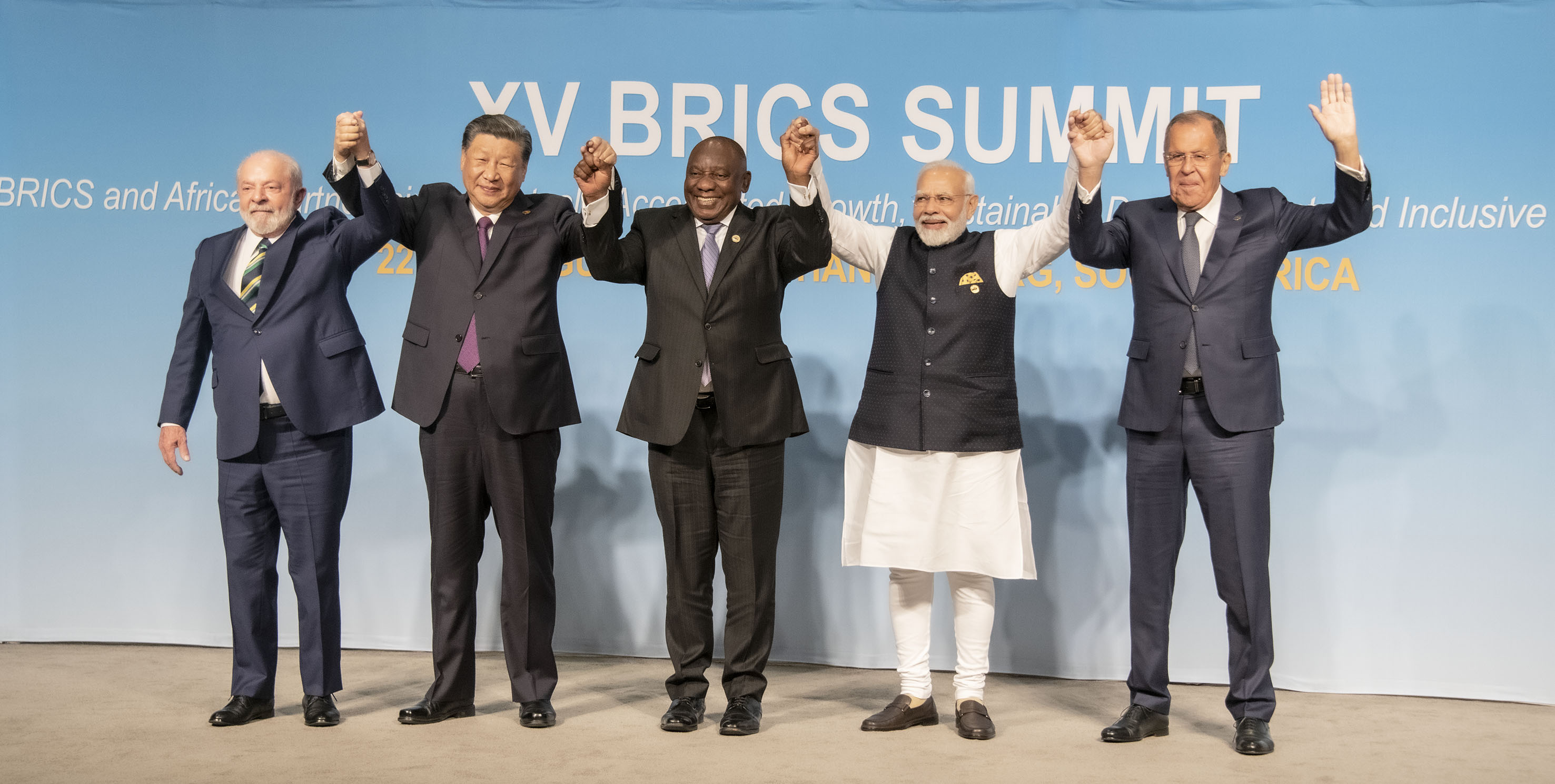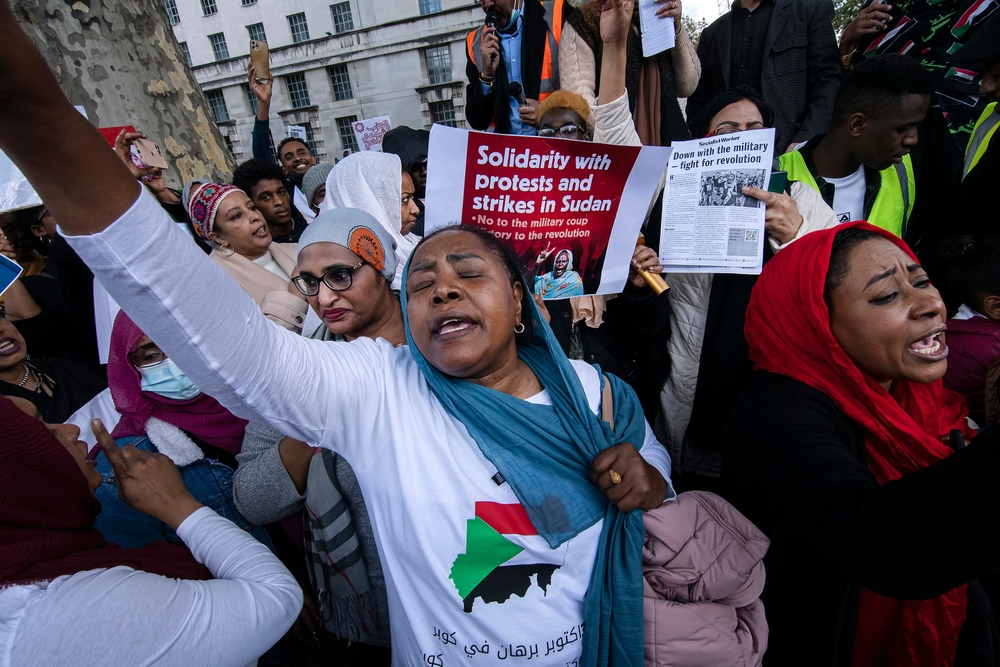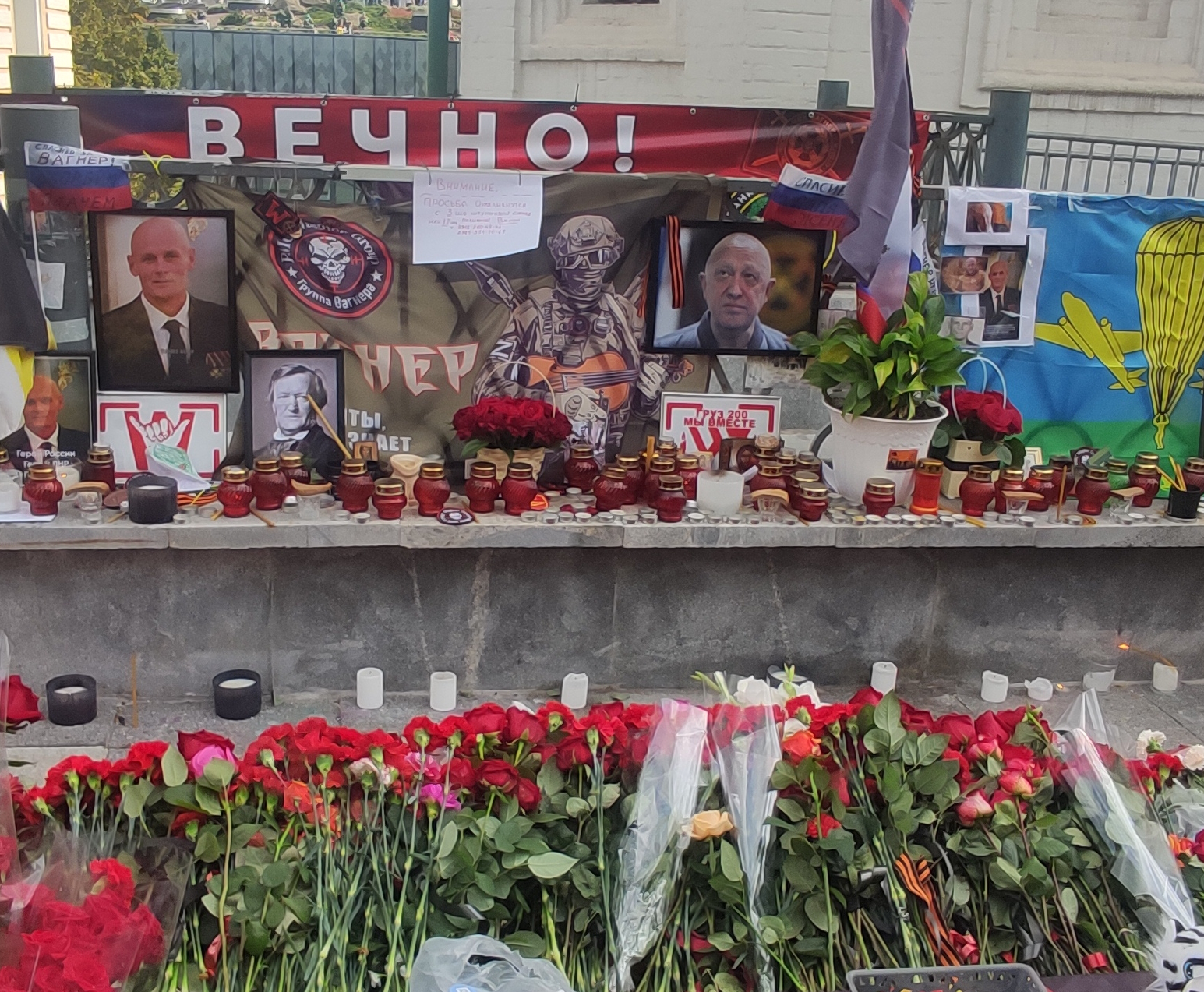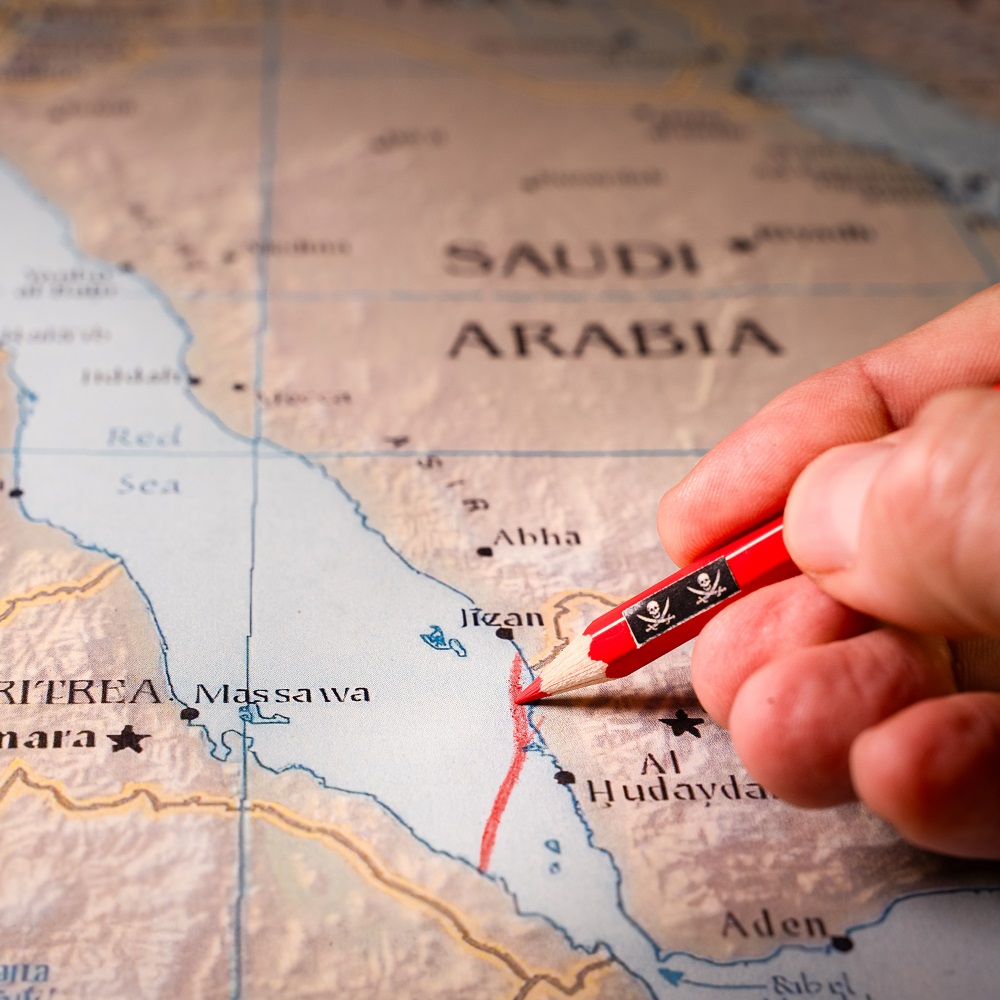
BRICS and the West: Don’t Believe the Cold War Hype
by Cedric H. de Coning
While it is prudent to be cautious, it may also be wise to explore cooperation in those areas where there are shared interests rather than assume that the BRICS and the West are strategic rivals on all fronts.This analysis was first published in the Global Observatory, 30 August 2023.When Jim O’Neill coined the BRIC acronym in 2001, the point he was trying to convey was that the global economic system needed to incorporate the world’s largest emerging economies. His advice fell on deaf ears and in 2009, Brazil, China, India and Russia decided to take matters into their own hands and formed the BRIC grouping. South Africa joined the group in 2010 to form the BRICS. This July, the group held its 15th summit in South Africa, where they decided to add six new members: Argentina, Egypt, Ethiopia, Iran, Saudi Arabia and the United Arab Emirates. More are likely to join in the future, including countries like Indonesia and Nigeria. What these countries have in common is a frustration, if not a grievance, about being side-lined to the periphery of the world economy. Together, the BRICS represent approximately 40% of the world’s population. The combined size of their economies are approaching approximately 30% of the world’s GDP, which puts them roughly on par with combined size of the economies of the G7 countries, depending on whether size is measured in GDP or PPP. More importantly, in the next few decades, the combined size of the BRICS economies will surpass that of the G7. Despite this growing parity, all the members of the BRICS, with the exception of Russia, self-identifies as being part of the Global South, i.e., they feel excluded from a global system dominated by the Global North. Their stated aim is to work towards a future system of global governance where they will have equal political and economic say in global institutions, and where no one state will dominate others. In pursuit of this aim, BRICS countries have established their own development bank, set up their own contingency reserve arrangement, are developing their own payment system, and have started to trade with each other in their own currencies. The BRICS want to free their economies from the dollar-based international financial system. They feel exposed to United States interest rates that can have a negative effect on their economies, for no domestic reasons. The dollar-based financial system also provides the US with significant advantages in the global economy, which the BRICS see as unfair. They also feel a dollar-based financial system gives the US hegemonic influence in global affairs, through for example, exerting US jurisdiction on all dollar-based trade or investments that flow through US banks or financial institutions. While the BRICS countries have these clear shared macro-economic interests, many of the members also have competing interests in other domains. China and India are geopolitical rivals in South Asia. Egypt and Ethiopia are at loggerheads over the Nile. Brazil, India, South Africa and the newly-added Argentina are democracies, while other countries in the group are governed by a diverse set of autocratic regimes, which could set up an irreconcilable clash of values on some issues. Many of the members of the BRICS also have close ties to the United States and Europe, including Egypt, India, Saudi Arabia and South Africa. South African President Cyril Ramaphosa, in a televised statement to the nation on the eve of hosting the BRICS summit in South Africa, explained that South Africa remains non-aligned, and he announced that in 2023 the country will also host a major United States-Africa trade meeting and an EU-South Africa summit. South Africa will also host the G20 in 2025, the first in Africa. For many countries, membership of the BRICS does thus not necessarily imply aligning themselves with one global alliance versus another, but rather cooperation in a group around a series of shared interests. Where does this place the BRICS on the Russian war in Ukraine? The BRICS summit in Johannesburg steered clear of taking a position on the war, other than welcoming mediation aimed at resolving it through dialogue and diplomacy. Some BRICS members like Iran are clearly supporting Russia, while most others have stopped short of either supporting or condemning Russia. For many such as Egypt, the war has adversely affected their economy. Two of the BRICS members, Egypt and South Africa, are part of an African initiative to seek a mediated end to the conflict, which is perhaps the first African initiative to mediate an international conflict. Overall, however, the BRICS have their eyes on the medium- to long-term transformation of the global macro-economic and financial system, and countries like China are probably frustrated that the Russian war in Ukraine has drawn attention away from this larger objective. Are the BRICS and the West headed for a new cold war? The shift in the center of gravity of the global economy to the East is an unstoppable fact driven by demographics and economic factors like the cost of production. At the same time, Europe and the United States will remain major economic players. In tandem with these changes in the global economy, it is clear that the global political order will become more multipolar, with China, Europe, India, and the United States representing some of the major centers of influence. In an August 27 article, Jim O’Neil argues that the influence of the BRICS will be determined by their effectiveness, not their size. An expanding BRICS will most likely succeed in helping its members to break free from a dollar-based international financial system, but that will take several decades of incremental change before it reaches a tipping point. Whether that is a good or bad thing depends on the degree to which your economy is tied to the United States. Many of the BRICS countries, including China, Egypt, India, Saudi Arabia, and South Africa all have economies whose prosperity are closely tied to the Unites States. They will thus have an interest in a slow, stable freeing up of the international financial system, and this should give everyone that is prudent time to adapt. The same logic also applies to changes in global governance architecture. Apart from Russia, all the other BRICS countries have an interest in making sure that changes in the global order are managed at a slow steady pace that does not generate instability. All the BRICS countries, apart from Russia, are also strong supporters of multilateralism, with the United Nations at its center. Many Western countries and BRICS members may thus have more shared interests than the doomsday headlines suggest. While it is prudent to be cautious, it may also be wise to explore cooperation in those areas where there are shared interests rather than assume that the BRICS and the West are strategic rivals on all fronts.











